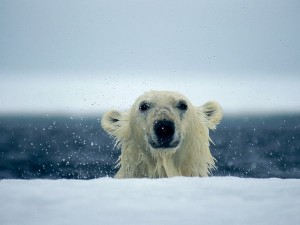It is difficult to disagree with the statement that “polar bears are among the worst candidates for captivity” as stated by Rob Laidlaw of Zoocheck Canada. Upon reading and reviewing documents on various issues with polar bear captivity, and extreme cases of maltreatment of polar bears, especially in tropical environments, the idea of phasing out the captivity of polar bears is one that seems extremely reasonable and well intended. A personal experience of witnessing what appeared to be a warm, depressed, low-energy polar bear in a seemingly too-small enclosure at Sea World in California as a child, is what has drawn me to this topic and led me to support this idea.
Although phasing out polar bears seems like an ethical solution, we also must consider what might happen to the wild polar bear populations. Polar bears tend to live longer in captivity than they do in the wild. With the polar bear’s natural environment being destroyed by global warming, one must wonder what will happen to this species if we discontinue the export of orphaned and “nuisance” bears to zoos. Orphaned bears will surely die without the care and protection of their mother, but might this death be more humane than the captive life they are bound to lead?
The subject of keeping polar bears in captivity and the welfare issues that are associated with it is a very complex issue. People’s views on the topic vary depending on their ethical philosophies. One thing, however, is for sure. Weather we want to keep them, or free them, the polar bear is an animal that has enticed humans for centuries, the idea of the extinction of this animal is one that humans cannot seem to bear. Weather the attraction to this animal is self motivated or rights motivated, it is one that humans cannot seem to ignore.
